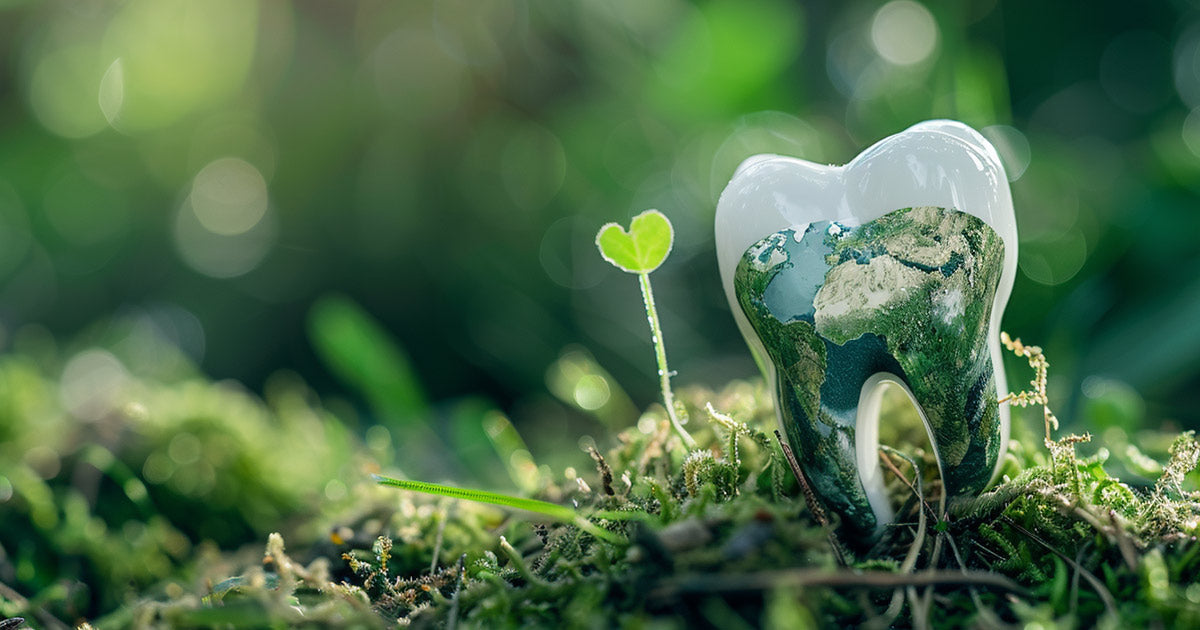For too long, the oral care sector has perpetuated a culture of disposability. It's estimated that the average person discards approximately 300 toothbrushes in their lifetime.
However, the magnitude of this problem extends well beyond toothbrushes. Consider the plastic bottles of mouthwash, toothpaste tubes, interdental brushes, and non-recyclable nylon dental floss, all encased in single-use plastic packaging. The entire ecosystem of oral health products seems designed for disposal, with little thought given to the end-of-life cycle.
So, why is this situation persisting?
One key factor is a general lack of commitment within the industry. A small number of well-established companies have dominated the oral care market for decades. The existing infrastructure and production methods make it economically and logistically challenging for these incumbents to shift towards more sustainable practices.
Products often appear intentionally designed to have a short lifespan, normalizing disposability. Rather than focusing on innovative, eco-friendly materials or creating products that customers genuinely appreciate, the industry has largely fixated on introducing gimmicks and "smart" features that do not necessarily improve the brushing experience. Consequently, perceptions and expectations surrounding oral care products have understandably plummeted.
Another significant issue is a lack of awareness. While problems like plastic bags and straws receive widespread attention and are relatively easy to grasp, most people remain unaware of the sustainability challenges within the oral care industry and the existence of alternative solutions.
Why does all of this matter?
It's estimated that at least four billion toothbrushes and nearly 20 billion toothpaste tubes are discarded annually, with neither of these items being easily recyclable. As a result, they end up in landfills, where they gradually contaminate the surrounding environments, contributing to the growing environmental and biodiversity crisis.
If you've read our article on electronic waste (e-waste), you'll know that electric toothbrushes are among the worst culprits in terms of toxicity. This is one of the primary motivations behind the creation of products like Sustainable Tomorrow Bamboo Electric Toothbrush.
The establishment and expansion of landfill sites necessitate the clearing of large areas of natural habitats. This not only disrupts ecosystems but also displaces local species due to predatory animals attracted to the waste, such as rats and crows.
Furthermore, landfills produce a hazardous liquid known as "leachate." This substance seeps into the soil and nearby water sources, compromising soil fertility and rendering water unsafe for consumption, affecting both animals and humans.
So, what lies ahead for the industry?
We believe the future of oral care should revolve around purpose-driven, high-performance products that bring joy to the daily routine.
By adhering to these principles in the design of our toothbrush, we've transformed what used to be a mundane chore into a delightful daily ritual. We aim to be a catalyst for change across the industry. We're already witnessing a growing number of brands embracing sustainability, with toothpaste available in recyclable tubes and plastic-free floss becoming more prevalent and widely adopted.
While there's still a long way to go, we are collectively creating a groundswell of change.


Share:
Electric Toothbrushes: Luxury or Necessity?
Why Should We Care About E-Waste?